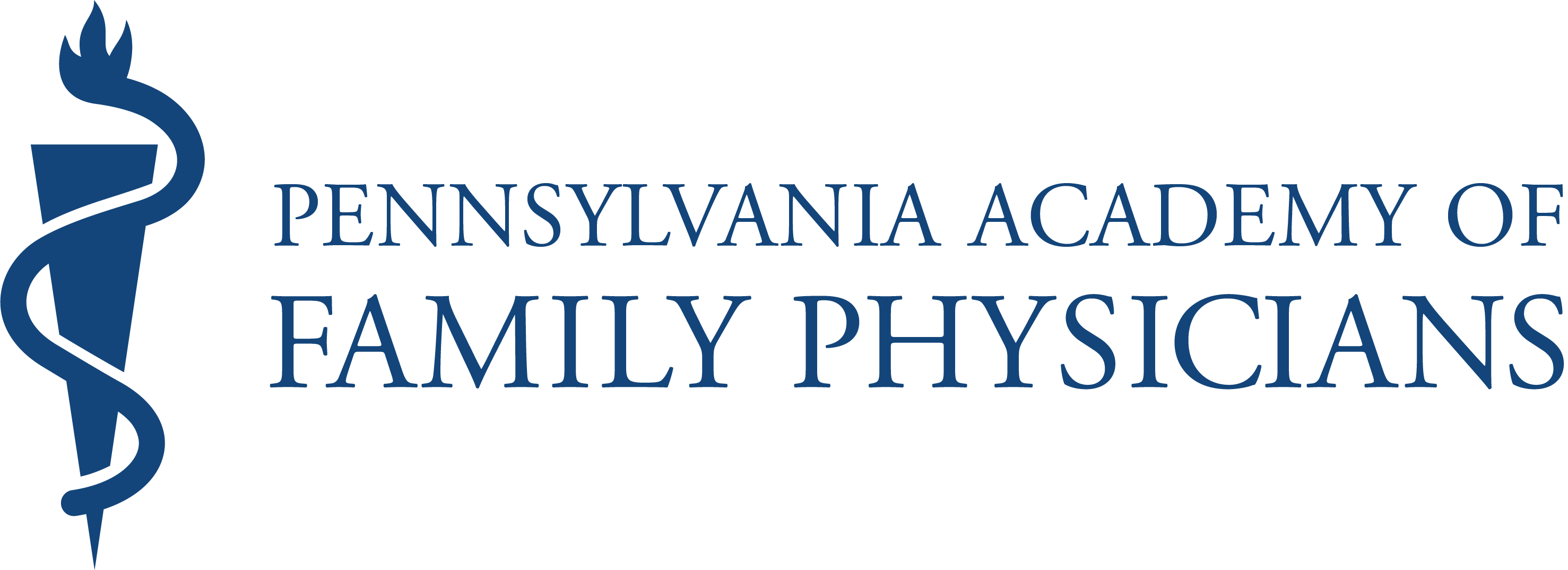Pain Management/Opioid Requirement
Initial Licensure
Section 9.1(a) of ABC-MAP* requires that all prescribers or dispensers, as defined in Section 3 of ABC-MAP, applying for licensure/approval complete at least 4 hours of Board-approved education consisting of 2 hours in pain management or the identification of addiction and 2 hours in the practices of prescribing or dispensing of opioids. Applicants seeking licensure/approval on or after July 1, 2017 must document, within one year from issuance of the licensure/approval, that they completed this education either as part of an initial education program, a stand-alone course from a Board-approved course provider, or a continuing education course from an approved continuing education provider. The 4 hours of Board-approved education needs to be completed only once. See the Board’s website for the Opioid Education forms and additional information.
Check PAFP's online CME catalogue for webcasts that meet this mandate.
License Renewal
Section 9.1(a)(2) of ABC-MAP* requires that all prescribers or dispensers, as defined in Section 3 of ABC-MAP, complete at least two hours of continuing education in pain management, the identification of addiction or in the practices of prescribing or dispensing of opioids as a portion of the total continuing education required. The required continuing education is part of the total required and must be taken from a Board-approved continuing education provider.
Act 31 Child Abuse Recognition and Reporting
Act 31 Training
PAFP offers Act 31 Training two times per year, in the spring and the fall. This education will meet the state mandate. Be sure to check out our Family Medicine Essentials Summits for information on this training.
All health-related licensees/certificate holders are considered “mandatory reporters” under section 6311 of the Child Protective Services Law (23 P.S. § 6311). Therefore, all persons applying for issuance of an initial license or certificate from any of the health-related boards are required to complete, as a condition of licensure, 3 hours of training approved by the Department of Human Services (DHS) on the topic of child abuse recognition and reporting. As a condition of biennial renewal, you are required to complete 2 hours of approved training on the topic of child abuse recognition and reporting from an approved provider.
Act 31 training: Click here to access current non-PAFP available programs to meet your Act 31 mandate.
Note:
Both Opioid/Pain Management AND Act 31 Child Abuse CME must be completed every licensure period.
DEA Renewal - At this point in time, the CME offered through PAFP does not meet the requirement for DEA renewal as our CME is accredited by the AAFP which is not on the approved list of providers. The AAFP is working to have this changed with the appropriate legislative bodies. We will keep you updated on any status changes.
CME Requirements - General Information
Pa medical licensure requirements - In order to renew a medical license, completion of 100 credit hours of
continuing medical education in the preceding biennial period, which runs from
January 1 of the odd year through December 31 of the next even year, will be
required for medical doctors.
Twenty (20) of those credit hours
must be completed in AMA PRA Category 1 activities.
At least 12 hours of the 100 must
be completed in activities related to patient safety or risk
management and may be completed in
either Category 1 or 2.
The remaining credit hours shall be
completed in either Category 1 or Category 2 approved activities.
PAFP members must comply with various CME requirements for state licensure, AAFP/PAFP membership and board certification. Follow the below links for details on each requirement:
Patient safety/risk management CME 12 credit hours in the areas of patient safety or risk management (either Category 1 or Category 2) are required to renew licensure. The following list of topics will satisfy the patient safety/risk management requirement:
- Improving medical records and record keeping
- Reducing medical errors
- Professional conduct and ethics
- Improving communication among physicians and with other health care personnel
- Communication between physicians and patients
- Preventive medicine education
- Health care quality improvement
As long as the CME activity falls within these topics, you can count it toward the patient safety/risk management requirement. The course does not have to state (and very likely may not) that it is a patient safety or risk management course.
CME Resources
Pennsylvania Department of State Resources
State Board of Medicine & Osteopathic Medicine Renewal Guide
